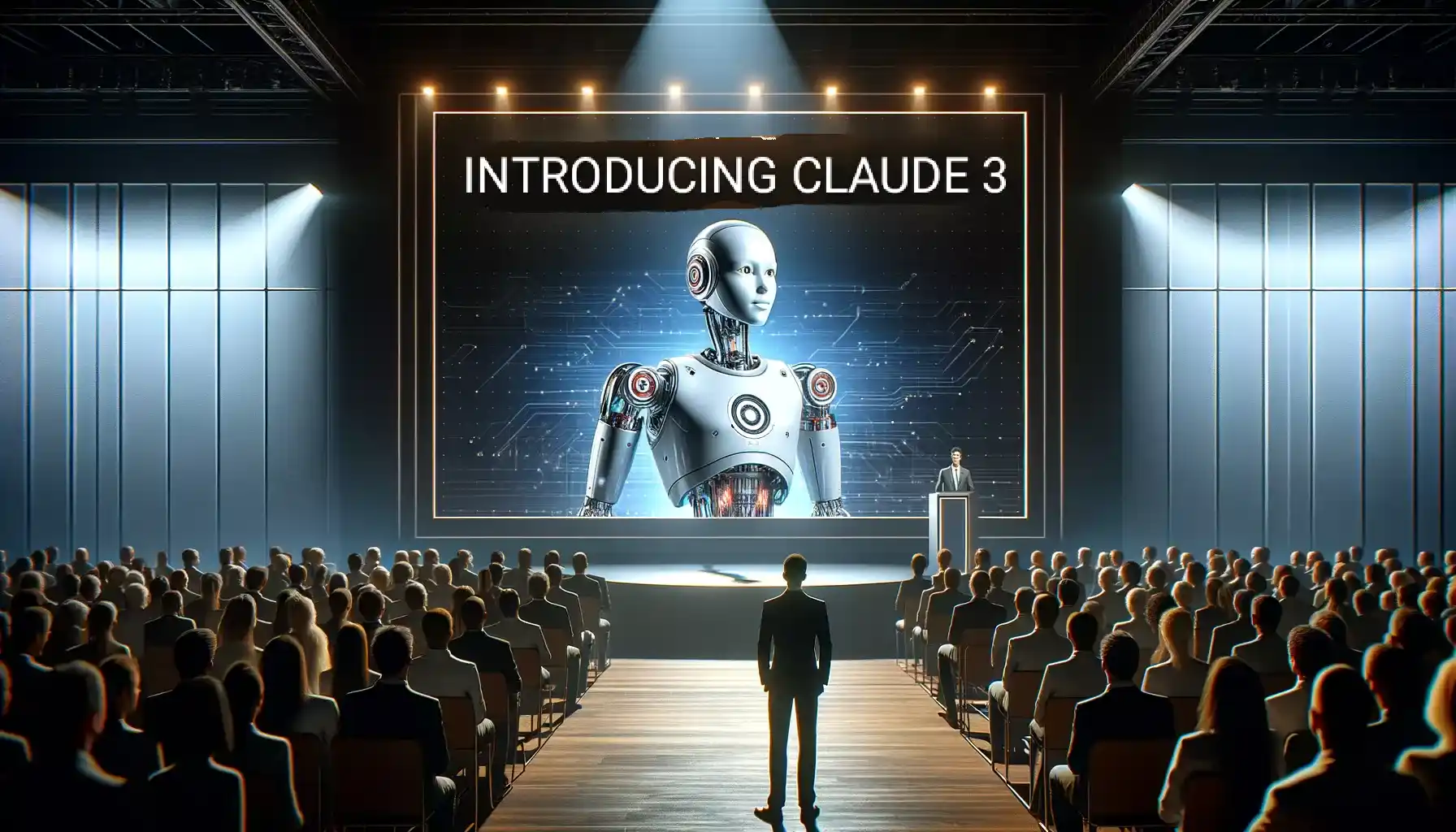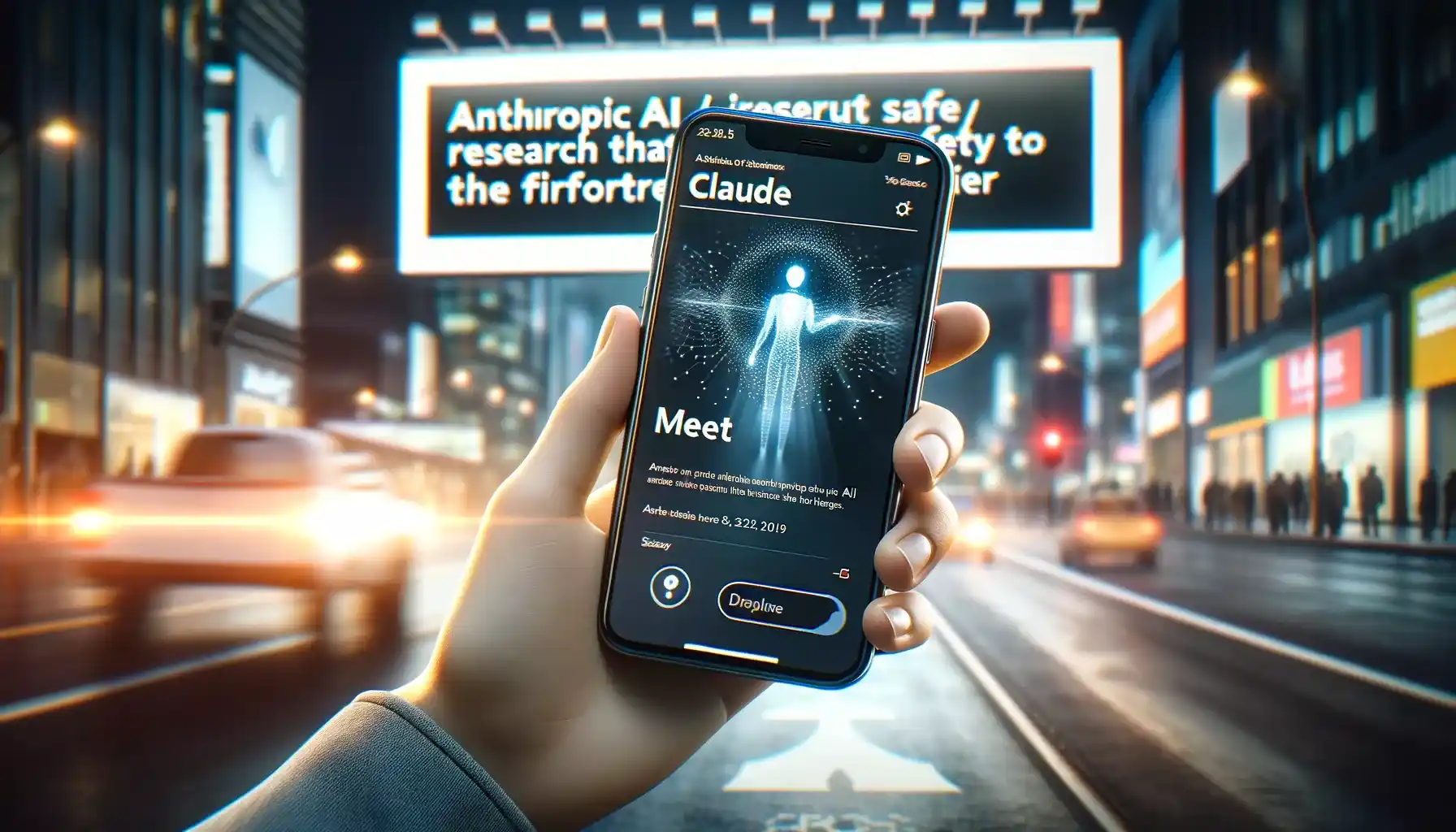Table of Contents
The Dawn of a New Era in AI Testing
In the rapidly evolving world of Artificial Intelligence (AI), the launch of Claude 3 marks a significant milestone. This latest iteration of the Claude AI series has not only set new benchmarks in the field of machine learning but also showcased an unprecedented triumph in AI testing. The advancements brought forth by Claude 3 are a testament to the relentless pursuit of excellence in AI research and development.

What is Claude 3?
Claude 3, developed by Anthropic, represents the next generation of AI assistants, designed with a focus on safety and ethics through its Constitutional AI methodology. This approach emphasizes creating AI that is helpful, harmless, and honest, incorporating guardrails to ensure it operates within safe boundaries across various applications. The development of Claude 3 is driven by the rapid pace of AI progress, growing public expectations, and Anthropic’s commitment to safety and ethics. With enhancements in accuracy, personality, domain knowledge, reasoning, and potentially multimedia applications, Claude 3 aims to advance AI technology responsibly.
Claude 3’s Testing Framework
A Revolutionary Approach
Claude 3’s testing framework marks a significant departure from traditional methods of evaluating AI performance. While conventional assessments often center on the AI’s proficiency in completing predefined tasks or solving isolated problems, they broaden the scope to encompass a holistic evaluation. By integrating criteria such as adaptability, scalability, and ethical decision-making, this innovative approach offers a more nuanced understanding of AI capabilities. Assessing adaptability gauges the AI’s capacity to flexibly respond to changing environments or unforeseen challenges, while scalability evaluates its ability to handle increasing complexity or workload demands. Moreover, the inclusion of ethical decision-making criteria acknowledges the growing importance of ensuring AI systems operate with integrity and fairness, reflecting a deeper commitment to responsible AI development.
Claude 3’s testing regime not only redefines how we measure AI performance but also underscores the evolving landscape of AI development and deployment. Moving beyond simplistic task-based assessments, this framework aligns with the broader goals of creating AI systems that are not only proficient but also versatile, robust, and ethically sound. By prioritizing adaptability, scalability, and ethical decision-making, Claude 3 sets a new standard for evaluating AI systems, emphasizing their potential to positively impact society while navigating complex challenges with integrity and responsibility.
Real-Time Illustration
Claude 3’s real-time adaptation capabilities have been a game-changer in the field of AI testing. Its ability to navigate complex scenarios, including interpreting human emotions and making ethical decisions, showcases its advanced understanding of nuanced situations. This adaptability is crucial for ensuring AI systems can handle real-world challenges effectively, paving the way for more reliable and trustworthy AI applications.
Furthermore, Claude 3’s scalability tests highlight its robustness in handling large volumes of data and complex computations. This scalability is essential for AI applications deployed in big data analytics and cloud computing environments, where processing massive amounts of data efficiently is paramount. Its performance under such tests demonstrates its potential to tackle real-world problems at scale, making it a promising tool for various industries.

Implications for AI Development
The testing triumph of Claude 3 represents a significant milestone in AI development, showcasing the potential for sophisticated evaluation frameworks to accurately assess AI capabilities. This achievement not only demonstrates the capabilities of modern AI systems but also underscores the importance of continually pushing the boundaries of what is achievable in the field. By setting a new standard for AI testing, Claude 3’s success encourages researchers and developers to strive for greater innovation and advancement in their work.
Furthermore, its emphasis on ethical decision-making and adaptability underscores the evolving nature of AI development. As AI systems become increasingly integrated into various aspects of society, ensuring that they exhibit ethical behavior and can adapt to changing circumstances becomes paramount. The incorporation of these principles into Claude 3’s testing framework highlights the need for a holistic approach to AI development that prioritizes not only technical capabilities but also ethical considerations and flexibility.
Overall, its testing triumph catalyzes the future of AI development, inspiring researchers to explore new avenues and approaches in their quest to create more intelligent and responsible AI systems. By embracing the lessons learned from Claude 3’s success, the field can continue to advance and address the complex challenges and opportunities that lie ahead in AI development.
Ethical AI
In today’s digital age, AI systems are becoming deeply integrated into various aspects of our lives, from healthcare to finance to transportation. With this increasing reliance on AI, it’s crucial to ensure that these systems make ethical decisions that align with human values. Its emphasis on ethical decision-making sets a standard for responsible AI development. By showcasing how AI can be programmed to prioritize ethical considerations, Claude 3 demonstrates the importance of integrating ethical frameworks into AI design and implementation.
Furthermore, as AI continues to evolve and become more autonomous, the need for ethical decision-making becomes even more pressing. AI systems have the potential to impact individuals and society in profound ways, and ethical lapses can have far-reaching consequences. Its focus on ethical decision-making not only fosters trust in AI systems but also encourages developers to prioritize ethical considerations throughout the development process. This emphasis on ethics helps mitigate the potential risks associated with AI and promotes the development of more transparent and accountable AI systems.
Ultimately, its approach to ethical decision-making underscores the importance of human-centric AI development. By prioritizing ethical considerations, AI developers can ensure that AI systems serve the best interests of humanity and contribute positively to society. As we continue to navigate the complexities of the digital age, ethical AI development will be crucial in building a future where AI enhances human well-being while respecting fundamental ethical principles.
Adaptability and Scalability

In the healthcare industry, Claude 3’s adaptability and scalability could revolutionize patient care. For instance, it could analyze vast amounts of patient data in real-time to identify patterns and predict health outcomes. Additionally, it could assist healthcare professionals in making faster and more accurate diagnoses, ultimately leading to improved treatment plans and patient outcomes.
In the finance sector, Claude 3’s capabilities could enhance fraud detection and risk management. Continuously learning from past incidents and adapting to new threats, could help financial institutions stay ahead of emerging risks and protect their clients’ assets. Furthermore, it could optimize investment strategies by analyzing market trends and making data-driven recommendations.
In education and entertainment, Claude 3 could personalize learning experiences and entertainment content based on individual preferences and learning styles. It could adapt its teaching methods in real-time to better engage students and improve their comprehension and retention of material. Similarly, in the entertainment industry, it could create personalized recommendations for movies, music, and games, enhancing user satisfaction and driving user engagement.
Conclusion
Claude 3’s success in testing marks a significant milestone in the evolution of artificial intelligence. Its remarkable adaptability and scalability demonstrate the potential for AI systems to tackle complex challenges across various domains. Moreover, its commitment to ethical decision-making sets a new standard for responsible AI development. Prioritizing ethical considerations alongside performance paves the way for AI systems that not only excel in their capabilities but also prioritize the well-being and rights of individuals.
The achievements of Claude 3 signal a promising future for AI, where trust and reliability are paramount. Its advancements serve as a blueprint for the development of AI systems that can navigate the complexities of the human environment with integrity and effectiveness. As we continue to harness the power of AI, the innovations showcased by Claude 3 inspire confidence in the potential for AI to positively impact society while upholding ethical standards.
FAQs
Is Claude 3 available?
Anthropic’s Claude 3 Sonnet foundation model is now accessible via Amazon Bedrock, alongside other variants in the Claude 3 series, including Claude 3 Opus and Claude 3 Haiku. These models represent the latest advancements in AI technology from Anthropic.
Is Claude smarter than ChatGPT?
Comparing the “smartness” of Claude and ChatGPT can be complex, as it depends on the specific capabilities, updates, and contexts in which they are used. Both AI models are developed with advanced natural language understanding and generation capabilities. The performance of one over the other can vary based on their training data, algorithms, and the specific tasks they are designed for. As of my last update, without specific benchmarks or contexts, it’s challenging to definitively say one is “smarter” than the other. Each has its strengths and might perform better in different scenarios.